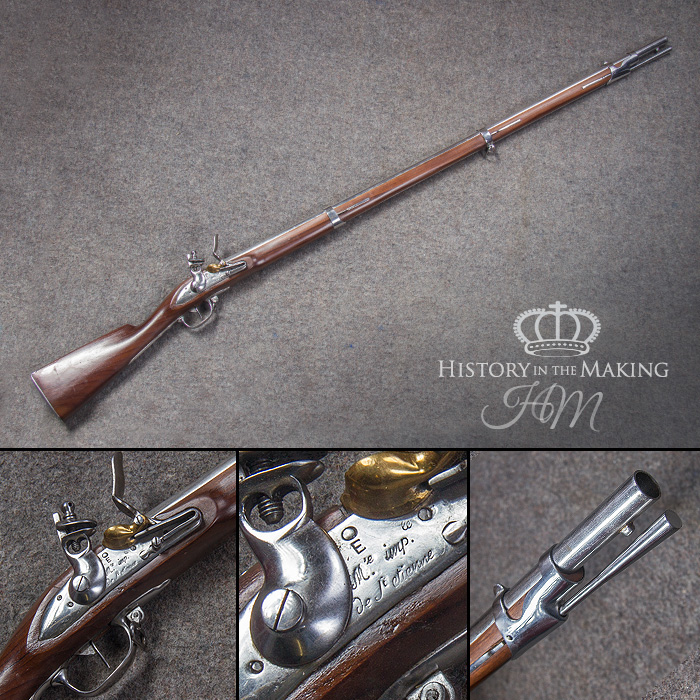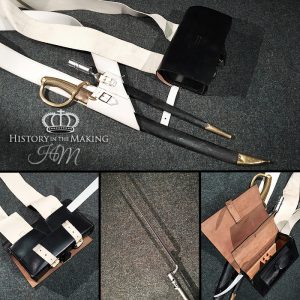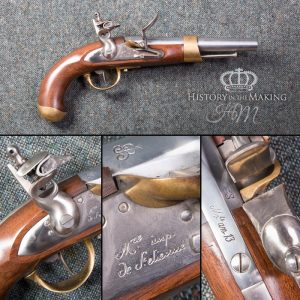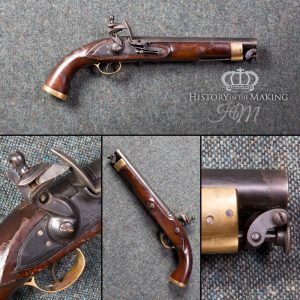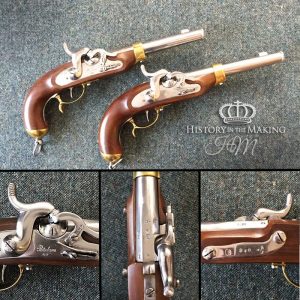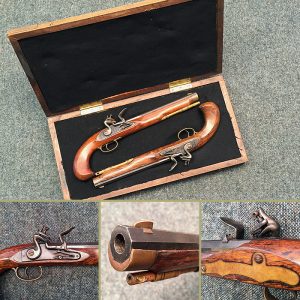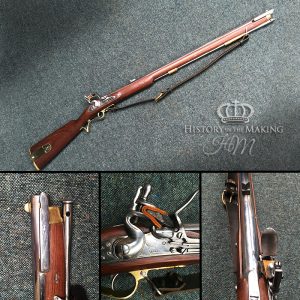French Charleville Musket- 1777 pattern- .68 cal- Live Firing
This is a reproduction French Charleville Musket- 1777 pattern- .68 cal . It is a practical weapon and is fully functioning.
All weapons in this hire category are capable of firing live ammunition and are therefore strictly controlled by the UK firearms act. However, for film and theatrical use, we have adapted many of our firearms to function firing blank rounds only.
All of our practical firearms are available for hire for film, television and theatrical performance on the condition that each contract is strictly supervised by an approved and qualified company Armourer.
Please refer to our standard Terms and Conditions of hire.
Description
The Charleville musket was a .69 caliber standard French infantry muskets used in the 18th century and 19th century. It was made in 1717 and its last production was held during the 1840s. However, it still was used limited through the mid-19th century (such as the Crimean War).
In 1717, a flintlock musket for the French infantry was standardized. This became the first standard flintlock musket to be issued to all French troops. While it is more correctly called a French infantry musket or a French pattern musket, these muskets later became known as “Charleville muskets”, after the armory in Charleville-Mézières, Ardennes, France. The standard French infantry-long gun was also produced at Tulle, Saint-Étienne, Maubeuge Arsenal, and other sites. While technically not the correct name for these muskets, the use of the name Charleville dates back to the U.S. Revolutionary War, when Americans tended to refer to all of the musket models as Charlevilles. The naming of these muskets is not consistent. Some references only refer to Model 1763 and later versions as Charleville flintlock muskets, while other references refer to all models as the Charleville. The Charleville musket’s design was refined several times during its service life. Later models of Charleville muskets remained in service until 1840, when percussion lock systems made the flintlock mechanism obsolete.
